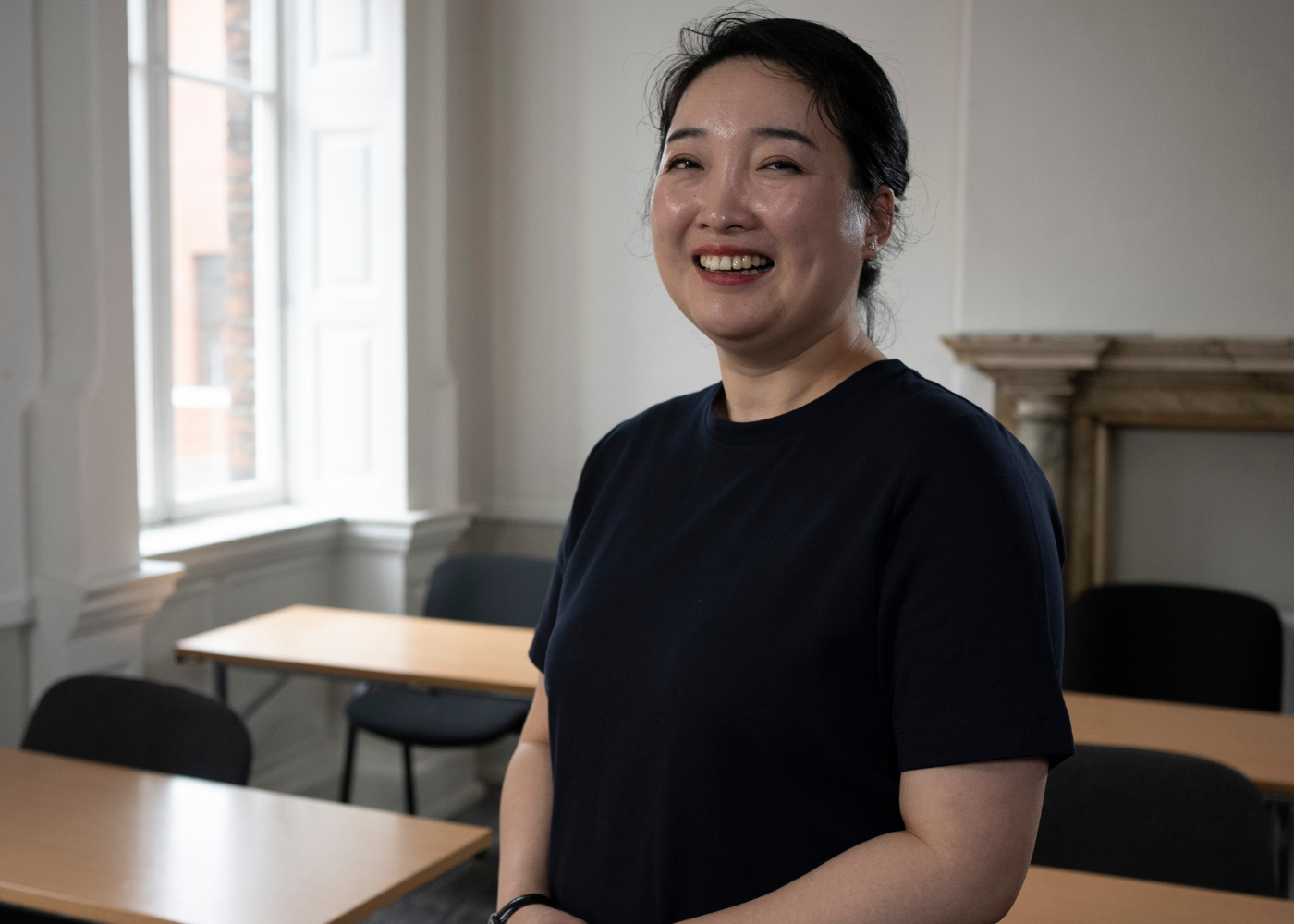Course Details
The newly approved QQI level 5 Major award in Early Learning and Care qualification will give you the recognised national qualification for starting a career working in Early Childhood Care and Education.
Qualification
QQI Level 5| Course | Delivery Mode | Start Date | Duration | |
|---|---|---|---|---|
| Early Learning & Care – QQI Level 5 Major Award |
Blended Learning
|
14th May 2024 | 9 months | |
| Early Learning & Care – QQI Level 5 Major Award |
Blended Learning
|
20th July 2024 | 9 months | |
| Early Learning & Care – QQI Level 5 Major Award |
Blended Learning
|
21st September 2024 | 9 months | |
| Early Learning & Care – QQI Level 5 Major Award |
Blended Learning
|
9th November 2024 | 9 months |
Overview
What will I study during this Certificate in Early Learning & Care – QQI Level 5 Major Award course?
This programme aims to develop your knowledge, skills, and competence suitable to autonomous professional practice subject to supervision as a member Early Learning and Care (ELC) community of practice to promote and support the physical and mental health, learning, development, and care needs of children across the range of ELC settings.
Upon completion, you will –
- Develop professional knowledge, skills, and competencies to effectively organise and lead learning environments.
- Foster a sense of professional identity and develop a framework of personal and professional values for working with children and families.
- Develop sociological thinking to form effective partnerships with children’s families and communities and appreciate their role in children’s development, and well-being learning.
- Inspire becoming an advocate for children and families and promote anti-discriminatory practice.
- Promote continuous professional development through emphasising the impact of qualifications and CPD on provision of high-quality experiences for children.
- Encourage commitment to development of the ELC sector through participation in the community of practice and modelling of good practice.
- Provide pathways to additional formal education and training in the disciplines relevant to provision of services for children and families.
-
Working in the Early Learning and Care Sector
The module provides an introduction to the key concepts which underpin work in the early learning and care sector and draws on a range of perspectives to illuminate the contexts within which it takes place. It emphasises the importance of evidence-based and reflective practice and provides a framework for developing an emergent understanding of being an early childhood professional.
The module aims to enable the learners to:
- Develop awareness of the historical perspective and factors shaping contemporary ELC
- Develop understanding of current structure of the Irish ELC, relevant stakeholders, and government and non-government organisations supporting the sector
- Foster an understanding of the right-based approach to provision of early childhood education and explore how children’s rights discourse shapes current legislation, policy, practice, professional standards, and values
-
Safeguarding Children’s Health and Well-being
This module will explore the concepts of health and well-being of young children and consider various factors which impact children’s welfare. The learners will develop knowledge, competence and practical skills required to meet the care needs of children in an ELC setting and to safeguard them from harm.
The module aims to enable learners to:
- Gain knowledge, competence, and practical skills about the role of the practitioner in establishing a safe environment which will promote health, safety, physical, emotional, and mental well-being of children
- Understand and assess risks to children’s safety and well-being
- Understand and respond to children’s physical care and nutritional needs
- Become familiar with current child protection and health promotion legislation and policy
- Have a clear understanding of the impact of abuse and neglect on children’s well-being and develop a professional competence to know when a child is in danger or at risk of harm
- Be aware of strategies and multi-agency approaches to protect children.
-
Observing and Documenting Children’s Development
The module examines how the human body grows and how human behaviour changes during early childhood. Learners are introduced to observation as prime activity of teaching and considers how learning and development of children can be documented and interpreted through a lens of developmental theory.
The module aims to enable learners to:
- To develop knowledge about developmental milestones in early childhood
- To develop awareness about the domains of development and their interconnected nature
- To recognise the impact of a child’s home environment, culture and first language on development
- To apply knowledge about developmental milestones to gather information about development and learning
- To know how to use major methods to observe children across all areas of development
- To identify when intervention is needed
- To develop emergent understanding of major developmental theories and use these to understand development, behaviour and learning of children
-
Understanding Play as a Context for Learning
The module will explore the phenomenon of play as a context for early learning and will consider historical, theoretical, and cultural views on play as well as provide learners with practical tools to evaluate and plan for children’s playful experiences.
The module aims to enable learners to:
- Understand complexity of play as a phenomenon
- Become familiar with historical and theoretical views on play
- Understand cultural variability of the concept of play
- Understand how play promotes learning across all areas of the curriculum
- Know how to organise enabling inclusive play environments
- Use a reflective approach towards evaluating play
- Develop practical skills and competencies in evaluating and planning for children’s play
- Develop a personal framework for the value of play in their practice
-
Considering Additional Needs of Children in Early Learning and Care
The module will introduce the learners to the key principles of good practice in ELC which is inclusive of children with additional needs. The module will enable learners to:
- Develop awareness about the range of additional needs children attending ELC services might have
- Develop confidence in understanding key concepts and using appropriate terminology associated with working with children with additional needs and their families
- Become familiar with legislation and professional guidelines promoting rights of children with additional needs and their families
- Understand the principles of good practice in providing early education and care for children with additional needs
- Develop knowledge about organisation of inclusive and accessible environments
- Develop awareness about a range of strategies for supporting children with additional needs in an ELC setting
- Appreciate importance of communication with stakeholders
- Develop awareness about external organisations involved in providing services for children with disability and their families
-
Professional Practice in Early Learning and Care
The module focuses on personal and professional development of learners in a work-based context and equips them with tools to construct knowledge about themselves as emerging professionals. The learners reflect on how they transfer knowledge, skills, and abilities to consider individual needs of children to promote their well-being, learning in partnership with other professionals and parents.
The module will require learners to undertake a placement of 150 hours with two different age groups 0-3 and 3-6. Placement can be taken either in block or on a weekly basis to accommodate learners who are combining work and study.
The module aims to enable learners to:
- Develop critical reflection skills
- Develop an understanding of good practice
- Make connections between learning across modules and apply their skills and knowledge in work-based contexts
- Evaluate practice in relation to the principles stipulated in learning and practice frameworks, legislation, and regulation
- Set professional goals and plan for personal and professional development
Who will I learn from?
Programme Manager
How will I learn?
Delivery Mode
Many students are seeking a combination of being able to study at a time that suits them but with the support of a tutor and the learning from peers included. Blended learning suits this student perfectly as it is a combination of contact tuition and distance learning. Everything needed to complete the course is available on a web-based learning platform. At the commencement of each module within a course, there will be a tutorial workshop held. This allows students the opportunity to meet their tutors in person and their other classmates. A comprehensive overview of the content of the module, the learning outcomes and assessment requirements are covered during this workshop. A demonstration on how to use the web-based learning platform is given during the induction workshop. The course work is usually given on a week-to-week basis to support you to stay on track. Assessments are uploaded online, and in many cases, a draft of your assessment can be submitted for feedback by your tutor before you submit the final version. Blended Learning for many is the best of both worlds, it gives you the independence and freedom to study at a time suited to you whilst also offering you guidance from expert tutors and the support of a peer to peer network from your fellow classmates.
Course Structure
Portobello Institute’s ELC level 5 course is delivered over 1 academic year. Course content is delivered online with supported workshops held on 6 Saturdays over the course of the programme.
Course materials are structured to be accessed on a week by week basis and are available to download from our eLearning platform as you progress through the course. Assignments are all designed for completion at home and once completed, you will upload these to the eLearning platform. Feedback and results are posted here for you to access too.
You must notify the programme manager you will be attending the workshops as and when they arise.
COURSE SCHEDULE - MAY 24
This course runs from the 14/05/24 – 13/02/25.
There will be an induction session held on Tuesday, 14th of May 2024 from 6.30 – 8.30pm where you will be introduced to your lead tutor who will prepare you to undertake this programme.
You have a choice to attend this onsite and meet your tutors and fellow students in-person or to log-in and attend the session online.
COURSE SCHEDULE - July 24
This course runs from the 20/07/24 – 05/04/25.
There will be an induction session held on Saturday, 20th of July 2024 from 6.30 – 8.30pm where you will be introduced to your lead tutor who will prepare you to undertake this programme.
You have a choice to attend this onsite and meet your tutors and fellow students in-person or to log-in and attend the session online.
COURSE SCHEDULE - September 24
This course runs from the 21/09/24 – 30/05/25.
There will be an induction session held on Saturday, 20th of September 2024 from 6.30 – 8.30pm where you will be introduced to your lead tutor who will prepare you to undertake this programme.
You have a choice to attend this onsite and meet your tutors and fellow students in-person or to log-in and attend the session online.
COURSE SCHEDULE - November 24
This course runs from the 09/11/24 – 25/07/25.
There will be an induction session held on Saturday, 09th of November 2024 from 6.30 – 8.30pm where you will be introduced to your lead tutor who will prepare you to undertake this programme.
You have a choice to attend this onsite and meet your tutors and fellow students in-person or to log-in and attend the session online.
Real Life Learning Opportunities
Work Experience
As part of this course, you will complete a work experience module which gives you the opportunity to put into practice the exercises and skills you will have learned during the programme. Learners are required to complete a total of 150 hours of work experience in an Irish early years setting. If you are working in an Irish early years setting, you can complete the practical element of the work experience module in your current role.
You will have the opportunity by using these skills to stimulate, develop and guide the children under your direction to develop to their full potential. We aim to ensure you have the opportunity to gain experience in a setting that is aligned with your career ambitions. Our tutors and programme management team will help you secure a suitable work placement during your studies and this placement can be in your locality to reduce travel and time spent in Dublin. If you are already working in a setting during your studies you may use this work as your work experience.
How will I be assessed?
A variety of assessment methods are used to support students with different learning styles. We encourage you to reflect on your knowledge gain with a number of assignments designed to explore your learning journey. All of these assessment methods are seeking to support you to combine theory with scenario-based learning and how to practically implement these methods into your everyday practice.
Career prospects
Exiting after Stage 1 (QQI level 5 major award) will qualify you to work as an Early Years Practitioner, an AIM support worker in ELC settings, or you can seek employment as Special Needs Assistants in Schools.
Further Study Opportunities
Learners completing Stage 2 (QQI level 6 major award) will qualify to work as room leaders in ELC settings, Early Years Practitioners, AIM support workers, and can be employed as Special Needs Assistants in Schools.
Optional modules will provide opportunities for learners to focus on their specific interests and career plans.
Learners can gain advanced entry to Year 2 of BA Ordinary in Early Childhood Care and Education and BA Ordinary in Inclusive Education Practice delivered by Portobello Institute and the University of Essex , which provide opportunities to progress up to NFQ level 9 and to programmes delivered by other providers in Ireland.
Related Courses
BA (Ord) Early Childhood Care & Education
This is a Level 7 BA (Ord) Early Childhood Care & Education degree. The blended learning option enables students to work full-time and complete this degree. Upon completion of this Level 7 degree, you will be eligible for the graduate premium from DCEDIY for your role in an early years setting.
Portobello Institute is participating in the new Nurturing Skills Learner Fund Scheme 2024 (NSLF). Please see fees section for more information and make an enquiry to speak to our course advisor Sarah Coyne who can help guide you.
Speak to an expert
Choosing a course that will lead you to your career of choice is a significant decision. Understanding the delivery modes, supports available, career opportunities and further study options are all key considerations when making your choice. Our course adviser team are experts in the courses Portobello offers, the employment prospects and possible progression routes to Masters programmes – they will guide you through the detail and support you with any queries you may have. It is important you make the right choice for you and choose the Institute and course that will best suit your needs.
Your Consultant

Jennifer Matteazzi
How long are you working in Portobello?
I have been working for Portobello Institute for over 5 years now.
What do you enjoy about working in Portobello?
I love the interaction with students. Every day I get to meet different individuals and learners who are looking to change their lives and I get to be the person who advises them on the best programme to take. It is a fantastic feeling to be part of their journey. For many learners this is a huge decision and I get to be the person who supports them in making that decision. There is an incredible sense of pride when I see our learners graduate and achieve their education goals.
What inspires you about working in education?
I believe that education is impowering and it can often change people’s lives. It increases the learner’s confidence and it allows the learner to reach their full potential. Coming back to education hugely lifts the learner’s self esteem.
Have you a story that you recall that touched you/made you laugh/made you cry?
One particular lady struggled with dyslexia all her life. Her disability really affected her years in school, her career choices and when this learner approached Portobello Institute I worked with her to establish the best way forward, the right course for her was without a doubt in childcare. This lady registered on the course and she needed a lot of hand holding throughout her studies from both myself and the academic team. I recall that the day of her graduation, she received the “Student of Year” award. We were all thrilled and delighted for her! This learner has since gone on to open a very successful Montessori setting.
How do you feel when you have helped a student reach a decision on their course choice?
I am there to be the deciding factor for our learners. We support people in making the right choice of programme for them. We reassure them the whole way and we support them throughout. It is a very rewarding feeling to be part of this process.
How do I apply?
Detailed below are the entry criteria for this programme.
- Leaving Certificate, including Leaving Certificate applied, or equivalent at NFQ level 4.
- Where the applicants do not have a Leaving Certificate or equivalent, they can be accepted on the basis of an interview and a short piece of writing
- Applicants whose first language is not English must demonstrate evidence of achievement of B2 standard for writing, reading, listening, and speaking at Common European Framework of Reference for Languages.
Additionally, applicants must:
- Be in a position to undertake supervised placement of 150 hrs per stage
- Be in a position to obtain Garda vetting
Fees & Payment Options
Fees
Course Price
Year 1 base fee
Additional Fees
Protection for Learner Insurance
Overall Course Price
Total amount due
Easy Payment Plan
Payment Option 1
30% deposit payment (€432.90), followed by 10 scheduled payments on the first of each month, commencing the 1st of the month after the start date of the course. Includes one off instalment fee of €195.
- €101.01 due in month 1
- €101.01 due in month 2
- €101.01 due in month 3
- €101.01 due in month 4
- €101.01 due in month 5
- €101.01 due in month 6
- €101.01 due in month 7
- €101.01 due in month 8
- €101.01 due in month 9
- €101.01 due in month 10
Available Courses
| Course | Delivery Mode | Start Date | Duration | Fees Per Year | |
|---|---|---|---|---|---|
| Early Learning & Care – QQI Level 5 Major Award |
Blended Learning
|
14th May 2024 | 9 months | €1,248.00 | |
| Early Learning & Care – QQI Level 5 Major Award |
Blended Learning
|
20th July 2024 | 9 months | €1,248.00 | |
| Early Learning & Care – QQI Level 5 Major Award |
Blended Learning
|
21st September 2024 | 9 months | €1,248.00 | |
| Early Learning & Care – QQI Level 5 Major Award |
Blended Learning
|
9th November 2024 | 9 months | €1,248.00 |
Apply
Hooray! One small step for you, one giant leap for your future! Enter your email and you will be redirected to our application platform, where you can complete your application in your own time. Here's what to expect:
- Enter your email, name and mobile phone number
- You'll be redirected to our Application platform
- Start your application
- Choose your preferred payment option
(No payment required at this stage) - Submit your application
- One of our course advisors will review and be in touch
Apply
Hooray! One small step for you, one giant leap for your future! Enter your email and you will be redirected to our application platform, where you can complete your application in your own time. Here's what to expect:
- Enter your email, name and mobile phone number
- You'll be redirected to our Application platform
- Start your application
- Choose your preferred payment option
(No payment required at this stage) - Submit your application
- One of our course advisors will review and be in touch
Apply
Hooray! One small step for you, one giant leap for your future! Enter your email and you will be redirected to our application platform, where you can complete your application in your own time. Here's what to expect:
- Enter your email, name and mobile phone number
- You'll be redirected to our Application platform
- Start your application
- Choose your preferred payment option
(No payment required at this stage) - Submit your application
- One of our course advisors will review and be in touch
Apply
Hooray! One small step for you, one giant leap for your future! Enter your email and you will be redirected to our application platform, where you can complete your application in your own time. Here's what to expect:
- Enter your email, name and mobile phone number
- You'll be redirected to our Application platform
- Start your application
- Choose your preferred payment option
(No payment required at this stage) - Submit your application
- One of our course advisors will review and be in touch







